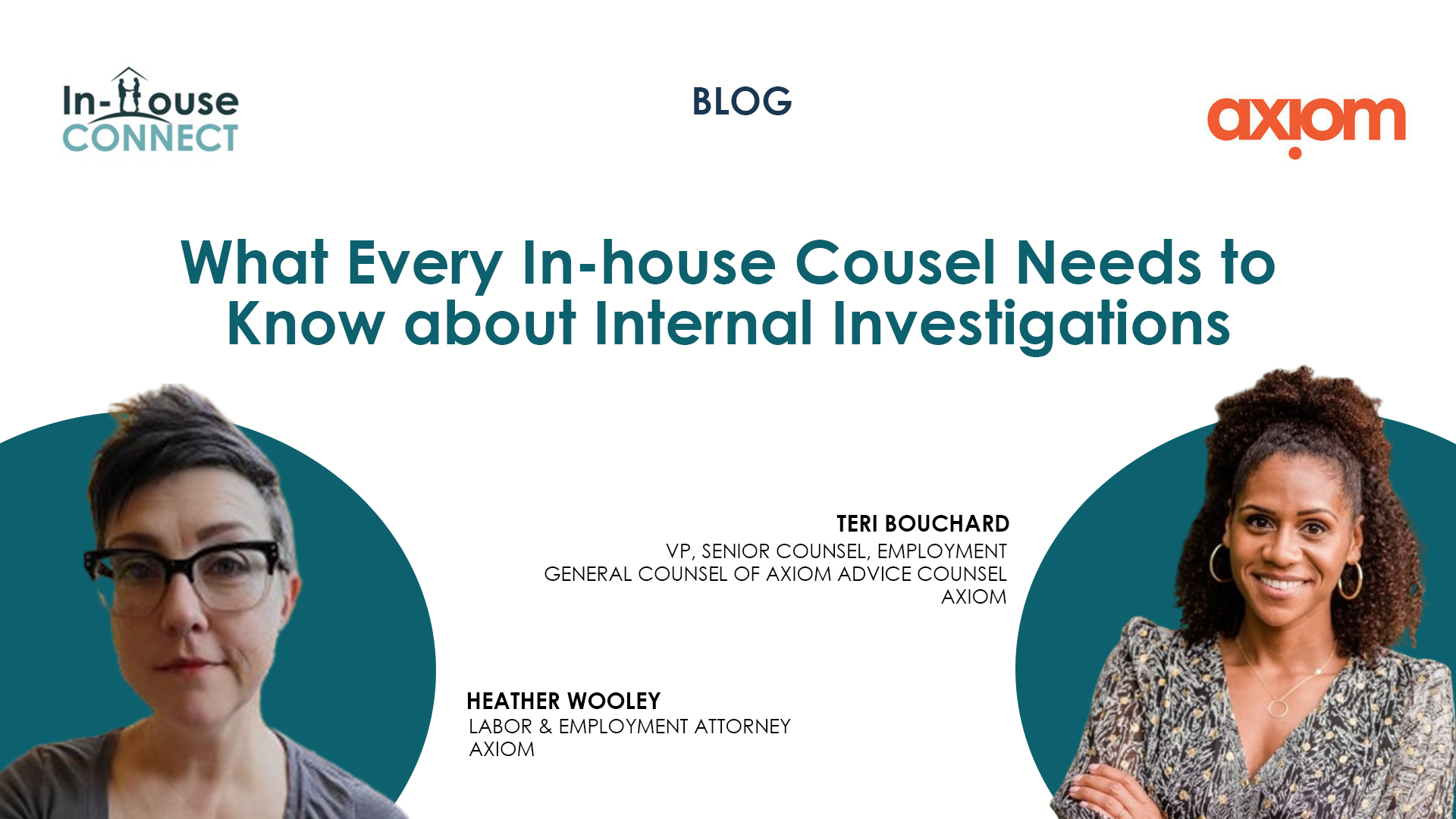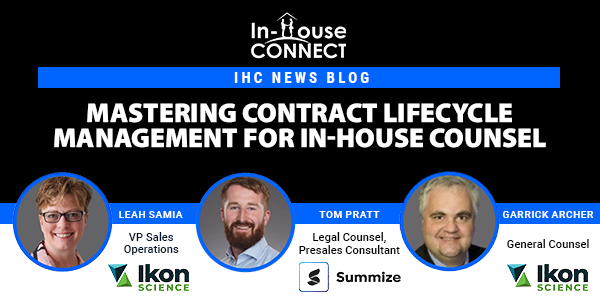In the recent In House Connect webinar “Understanding Imposter Syndrome and Befriending the Inner Critic,” experts Shauna Bryce former Chief Legal Talent Officer, Chief Diversity Officer, and in-house/law firm lawyer, and Kamilah Exum a former Federal Reserve attorney, tax attorney, and AmLaw 100 pro bono program director, shared invaluable insights on grappling with the challenges of imposter syndrome and learning to work alongside one’s inner critic to achieve career goals.
Here are the top five takeaways from the webinar:
- Recognizing the Prevalence of Imposter Syndrome
Imposter syndrome is much more common than many people realize, with studies indicating that over 70% of individuals experience it at some point in their lives. This issue is particularly prevalent in high-achieving fields like law, where 74% of lawyers overall, and 83% of junior lawyers, report experiencing imposter syndrome. Understanding that these feelings are widespread can be the first step toward addressing them.
- The Negative Impacts of Imposter Syndrome
Imposter syndrome can have significant negative effects, including feelings of isolation, alienation, burnout, anxiety, and depression. Lawyers, for instance, experience depression at a rate 3.6 times higher than the general population, highlighting the importance of addressing the factors contributing to these mental health challenges. Recognizing and mitigating the impacts of imposter syndrome is crucial for maintaining long-term well-being.
- Effective Strategies to Address the Inner Critic
The webinar provided several practical exercises to help participants manage their inner critic, such as journaling, changing environments, and engaging in uncomfortable but necessary self-reflection. By challenging the messages of the inner critic, individuals can learn to differentiate between harmful self-talk and realistic self-assessments.
- Understanding the Role of Societal and Environmental Influences
Societal standards and internalized messages significantly influence the beliefs and expectations that fuel imposter syndrome. For example, societal perceptions about roles like motherhood and professional success often set unrealistic standards that people strive to meet. Recognizing and challenging these narratives is essential for overcoming imposter syndrome.
- Patience and Perseverance in Befriending the Inner Critic
Addressing the inner critic requires patience and perseverance. It involves showing kindness and gratitude towards the inner critic, understanding that its messages often stem from misguided beliefs formed in childhood. With the right approach and a willingness to shift one’s perspective, individuals can transform their inner critic into an ally and advance toward their career goals.
The webinar provided a comprehensive understanding of imposter syndrome and offered practical tools for managing it. By recognizing the commonality of imposter syndrome, understanding its negative impacts, employing effective strategies to address the inner critic, acknowledging societal influences, and practicing patience, individuals can start to reframe their mindset and work towards their goals with confidence.
Missed the session? You can watch it now via IHC On-Demand!







